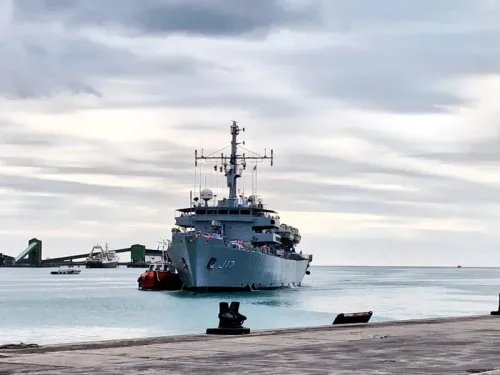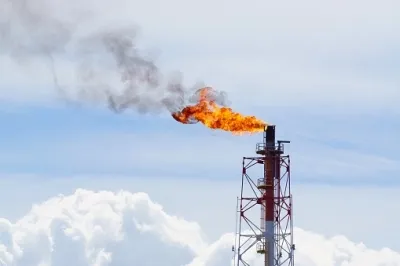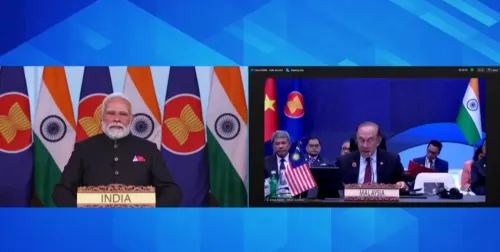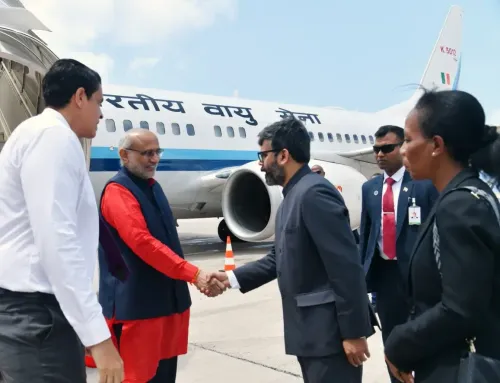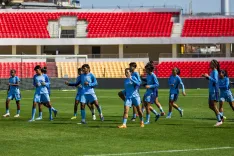Do South Korea and the US Have a Comprehensive Security Deal?
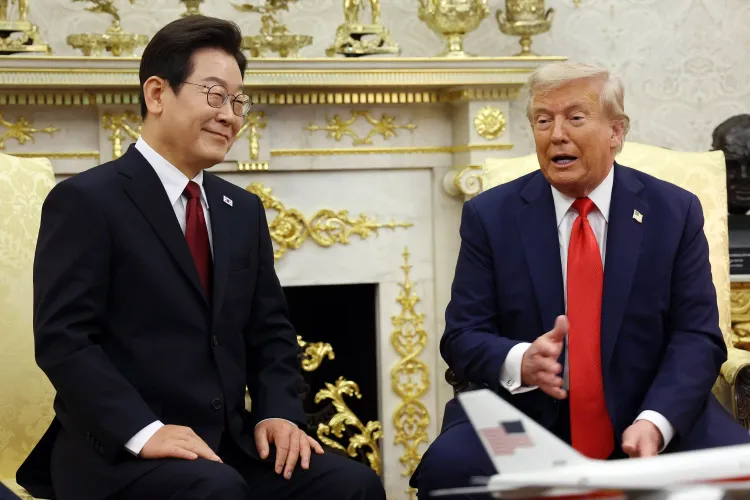
Synopsis
Key Takeaways
- Security agreement established on paper between South Korea and the US.
- Trade negotiations are still ongoing and involve significant investments.
- South Korea aims to increase its defense spending.
- Revisions to the '123 Agreement' are being sought for more flexibility.
- Upcoming summit between South Korea and Japan is anticipated.
Seoul, Oct 26 (NationPress) South Korea and the United States have established an agreement on paper regarding security and alliance issues, while discussions to finalize a trade deal are still in progress, stated National Security Advisor Wi Sung-lac on Sunday.
During a television interview, Wi revealed that Seoul and Washington are nearing the conclusion of their negotiations on the execution of South Korea's USD 350 billion U.S. investment package, as stipulated in a deal from July, aimed at reducing U.S. tariffs on South Korea from 25 percent to 15 percent.
In addition to the trade deal, both nations are anticipated to announce a separate agreement outlining their security commitments, which will detail South Korea's plans to enhance its defense budget and how the two countries will manage the adjustment of U.S. troop roles in Korea, part of their initiative to 'modernize the alliance.'
"We have most of the documentation prepared for the security aspects. While we are uncertain about finalizing the tariff component, we are diligently working on it," Wi mentioned during his interview with public broadcaster KBS.
When questioned about the possibility of reaching a final agreement at this week's Asia-Pacific Economic Cooperation (APEC) summit in Gyeongju, Wi responded, "We'll have to wait and see," as reported by Yonhap News Agency.
Seoul has indicated that there are still unresolved issues in the negotiations, including the levels of direct investment, the timeline for investment delivery, and the method for distributing returns.
Wi noted that Seoul proposed to increase its defense spending—a pivotal demand from U.S. President Donald Trump for U.S. allies—leveraging this to persuade Washington to agree to a modification of a bilateral nuclear energy agreement, known as the '123 Agreement.'
"We have consistently argued that the current restrictions are unjust considering our capabilities, and we have received a favorable response from the U.S.," Wi stated.
The agreement, which was last updated in 2015, prohibits South Korea from reprocessing spent fuel and enriching uranium without U.S. consent.
South Korea aims to incorporate a revision of this pact into the security deal, granting it more flexibility regarding the reprocessing of spent nuclear fuel and uranium enrichment for civilian energy use.
Concerning the forthcoming discussions between President Lee Jae Myung and Chinese President Xi Jinping, scheduled for Saturday, Wi emphasized the importance of establishing a 'personal relationship' between the two leaders.
"Additionally, we must encourage China to collaborate on denuclearization and ensure peace and stability on the Korean Peninsula, as we strive to foster practical cooperation in various economic sectors," he stated.
In this context, Wi urged conservative activists in Korea to avoid organizing anti-China protests, labeling them as 'disrespectful' and 'contrary to the spirit' of welcoming a foreign leader on a state visit.
Wi mentioned that Lee is likely to engage in his inaugural summit talks with the new Japanese Prime Minister Sanae Takaichi in Gyeongju on Thursday.
"From what I understand, she is regarded as a conservative, but many do not categorize her as a far-right figure," Wi said, addressing concerns raised in Korea about Takaichi's assertive stance on historical matters linked to Japan's colonial rule of Korea from 1910 to 1945.
"I have heard that she has a particular interest in, and acknowledges the significance of, South Korea-Japan relations.

